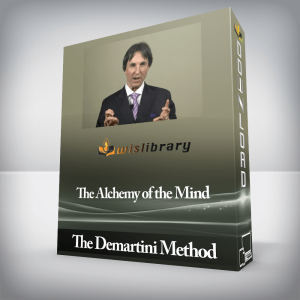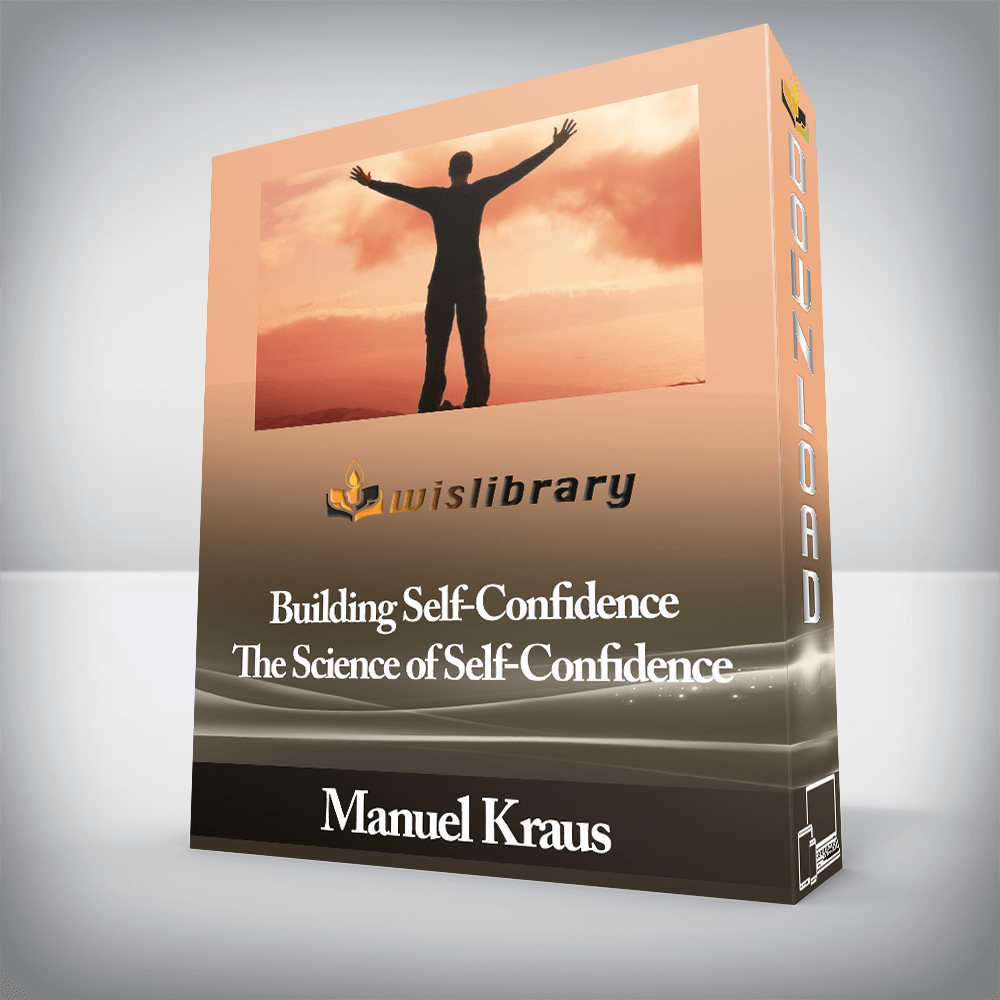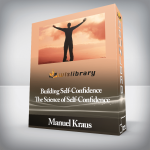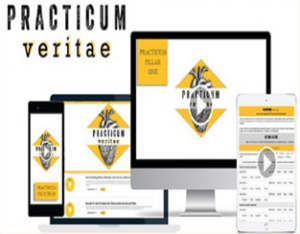Manuel Kraus – Building Self-Confidence – The Science of Self-ConfidenceThis course distills research from psychology and neuroscience from all over the world into lessons and steps that you can take to become more self-confident.Become Self-Confident and Set Yourself Up for SuccessChallenge self-doubts effectivelyUnderstand and develop ‘growth mindsets’Identify thinking errors and generate alternative beliefsManage feelings of anxietyLean into uncomfortable feelingsUse positive emotions to raise confidenceUse ‘tiny habits’ to build up confidenceLearn to leave your comfort zoneUse long-term strategies to improve confidenceHarness your social environmentStop social comparisonBuild a detailed confidence action planGet a full-fledged self-confidence course that covers every single factor that contributes self-confidence.Self-confidence is an important factor for how far we get in life. Because self-confidence is part of you achieving your goals, reaching your dreams, creating the life you want. When you start building your self-confidence, you take one of the most important steps towards a successful and fulfilled life. In this course you’ll learn how to build self-confidence – based on the scientific research in psychology and neuroscience.Course CurriculumIntroductionIntroduction (1:59)Self-Confidence: Low versus High (0:50)Self-Confidence: Global versus Specific (3:05)Activity: Which areas in your life are you already confident in?Activity: Where do you want to build confidence?What Confidence Is Not (1:53)Activity: Choose an AreaHow Confidence Develops (3:54)How Confidence Can Be Learned (2:39)Thoughts and Beliefs – Mindsets and Self-DoubtQuote: Thoughts Shape DestinyHow Beliefs Become Self-Fulfilling Prophecies (4:50)How Mindsets Shape Our Confidence (5:30)Fixed versus Growth Mindset (4:29)Activity: Identifying Fixed MindsetsQuote: The First DraftHow Self-Doubts Shape our Confidence (8:10)Challenging our Self-Doubt (1:48)QuoteActivity: When in the past where you successful?Thoughts and Beliefs 2 – Changing Thinking PatternsHow our Beliefs Shape our Reality: The ABC Model (3:36)Activity: Recording ABC SequencesHow Cognitive Distortions Shape our Self-Confidence (0:45)Cognitive Distortions OverviewActivity: Identify Cognitive DistortionsActivity: Dealing with Cognitive Distortions 1Activity: Dealing with Cognitive Distortions 2Feelings – Managing AnxietyIntroduction – Feelings and Self-Confidence (1:47)Causes and Purpose of Anxiety (3:08)Negativity Bias (2:05)Deep Diaphragmatic Breathing (1:40)Worksheet: Diaphragmatic BreathingSelf-Talk (2:42)Activity: Counter Negative Self-TalkReinterpreting Anxiety (1:46)Activity: Reinterpreting AnxietyOther Stress Management Techniques (1:13)Managing AnxietyFeelings – Accepting AnxietyUnderstanding Acceptance (2:41)The Role of Avoidance (1:09)Learning to Accept Anxiety (3:38)Activity: Body Scan MeditationAccepting AnxietyFeelings – Using Positive EmotionsIntroduction (0:19)Feeling Good: A Confidence Boost (1:17)The Undoing Effect of Positive Emotions (3:20)Activity: Positive Emotions as a Confidence BoostShare your favourite quoteList of Uplifting VideosPositive EmotionsBehavior –  SmallIntroduction (2:14)Self-Perception Theory (6:04)Self-Perception Theory: The Paradox (3:19)Activity: Confidence Challenge HierarchyThe Psychology of the ‘Comfort Zone’ (2:41)Small Daily Habits for Long-Term Change (5:09)Activity: Confidence ChallengeQuote: The Secret of Getting AheadVisualization (1:23)Activity: VisualizationBehavior – Fake It ‘Til You Make ItJust Do It (3:33)Quote: Ever Tried. Ever Failed.Activity: Just Do ItThe Anxiety Curve (1:31)Willingness (2:24)Activity: WillingnessActivity: Willingness IIDealing With Failure (4:03)Quote: Learn to Fail or Fail to LearnPower Poses (3:24)Worksheet: Power PosesBehavior – Long-Term StrategiesConfidence Boost: Physical Activity (1:51)Setting Goals for Confidence (1:55)Activity: Planning Behavior and Setting GoalsRaising Competence (2:02)Activity: Raising CompetenceQuoteSocial ContextThe Social Context of Self-Confidence (5:12)Modelling Behavior (0:50)Activity: Finding Role-ModelsActivity: Learning from our PeersBuilding a Support Network (1:37)Activity: Board of SuccessActivity: Who can help me with this?Social Comparison (2:48)Quote: Social ComparisonActivity: Stop Negative Social ComparisonFinal SectionCombining the Lessons Learned (2:07)Activity: Make your Self-Confidence PlanHow did you like it?End-of-course surveyReferencesOverview: Ways to Build Self-ConfidenceQuote: The Things You Didn’t Do Your InstructorManuel KrausManuel Kraus is the founder of Good Life Foundation, an organization seeking to empower individuals and communities across the world to live happy and fulfilled lives by teaching positive psychology. He is also an expert in the field and one of only a few people in the world holding a Master’s degree in Applied Positive Psychology. His main research interest focuses on the experience of meaning in life.He has been teaching positive psychology in workshops and seminars; and is the author of a series of online courses. They cover topics from building positive emotions and self-esteem to changing mindsets and overcoming tough times.Positive psychology is the scientific study of life flourishing and optimal human functioning. It asks questions like these: What do very happy people do differently? How do the most successful people think and act?What makes some married couples stay together happily for many decades while others break up within months or years? And why are some people able to bounce back from failures while others succumb to them?Happiness is not the absence of sadness and anger, and eliminating weaknesses does not mean we are really good at something. Many, many experiments, case studies, analyses and other forms of rigorous research have been conducted to provide insights into what makes our lives good and how we manage to live happily and successfully. Unfortunately, this science is not yet accessible to many people. That is why Manuel is committed to teach these findings and applications. His goal is to help create the foundations for everyone to live a good life by making positive psychology research accessible to everybody.‘I believe that the scientific study of what makes our lives most worth living can help people transform their lives. That is why I teach about topics like personal growth, building fulfilling relationships, goal-setting, mindfulness, self-esteem and realizing strengths. My personal mission is to make positive psychology research accessible to everybody, and thereby creating the foundations for people to live a good life and help build a better world.’There are no reviews yet.Add a Review Cancel replyYou must be logged in to post a review.
 Master Wei & Master of Zhineng Qigong – Mingjue Atih 2022-2023 Recordings
₹22,742.00
Master Wei & Master of Zhineng Qigong – Mingjue Atih 2022-2023 Recordings
₹22,742.00
 The Demartini Method – The Alchemy of the Mind
₹11,952.00
The Demartini Method – The Alchemy of the Mind
₹11,952.00
Manuel Kraus – Building Self-Confidence – The Science of Self-Confidence
₹2,822.00





